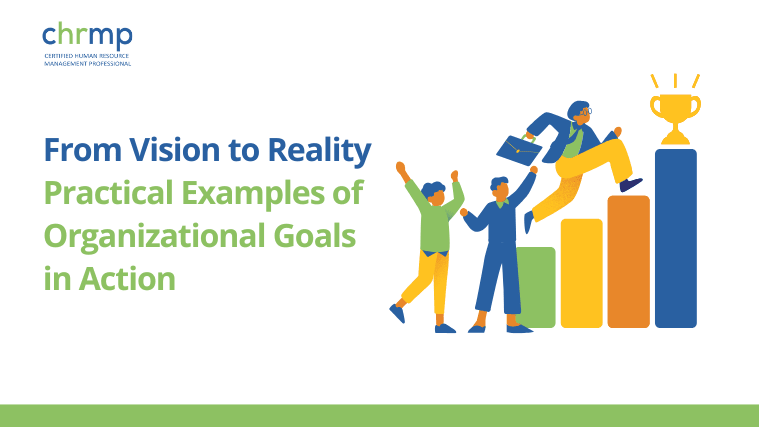

In this article, we will discuss how Human Resource Management should prepare for a potential disaster in the workplace that could cause harm to employees or their families.
Disasters are inevitable. They may not always occur, but they do happen. When disasters strike, HR has a vital role to play in helping people recover from them. In addition to providing support to individuals who have been affected by these events, HR also plays a crucial part in preventing such disasters from occurring again in the future.
An Unexpected event is one of the most common causes of workplace disasters. These include natural disasters like hurricanes, tornadoes, floods, earthquakes, and fires; as well as man-made disasters like terrorist attacks, industrial accidents, financial crisis , and other acts of violence that leave a negative impact on the organizational capabilities.
When a disaster occurs, HR must ensure that all of its staff members are prepared to deal with any situation that arises. The goal is to make sure that everyone on site knows exactly what to expect and how to respond to any emergency situations that arise.
The following are some ways that HR can help protect against disasters:
1. Make sure that there are enough supplies available at all times. People need food, water, shelter, clothing, and other basic necessities in order to survive. Without these things, people cannot function properly. In order to provide these essentials, companies must stock up on essential items before a disaster strikes. These items include flashlights, batteries, first aid kits, and more.
2. Train employees on how to react during emergencies. Even if no major incidents occur, it’s still important to train employees about what to do in case of an emergency. Employees should know where to go, how to proceed, and what to do when faced with certain situations.
3. Ensure that employees are aware of evacuation plans. Evacuation plans are very important because they allow people to leave areas that are unsafe without causing chaos. Evacuation plans also help people avoid panic and confusion.
4. Keep employees updated on safety procedures. It’s important to keep employees informed about safety procedures so that they know what to do in case a disaster does occur. For example, it would be beneficial to instruct employees on how to use fire extinguishers, escape routes, and other safety measures.
5. Conduct regular drills. Regular drills are extremely helpful because they give employees practice in handling different kinds of scenarios. As long as employees are trained on how to handle various situations, they are better equipped to deal with real-life emergencies.
6. Provide information to employees about local resources. If a disaster happens, people might not know where to turn for assistance. This means that they won’t be able to get the help they need. To prevent this problem, HR professionals should inform their employees about organizations that offer relief services after a disaster.
7. Have a plan for dealing with employee injuries. A company will likely experience many types of injuries during normal operations. However, when a disaster strikes, people may have to work outside of their comfort zones. This could lead to injuries such as cuts, sprains, and bruises. When a disaster occurs, HR professionals should have a plan for dealing with these kinds of injuries. They should be ready to take care of injured workers immediately.
8. Inform employees about insurance coverage. Disaster recovery planning should always include the possibility of having to pay out large sums of money due to claims. Companies should make sure that their policies cover these costs.
9. Prepare for the worst. Although most companies don’t experience major disasters on a regular basis, it is wise to prepare for them anyway. Because disasters can strike anytime, companies should be prepared for any situation.
10. Be realistic. Disasters happen unexpectedly. Therefore, it’s important to be prepared for anything. By being realistic, companies will be better prepared to respond to any kind of crisis. A business continuity plan is essential in order to keep up the employee engagement , with strong leadership skills and performance management in times of crisis and through disciplinary action business owners can still tackle the unexpected event efficiently.
Scenario planning is a method of thinking through future scenarios. It helps us prepare for potential events and makes them easier to deal with. The goal is to create a plan for dealing with these events before they happen. This allows us to better manage our time and resources.
This tool is useful for anyone who wants to improve their decision-making skills. It helps us identify problems and opportunities, and then develop strategies to address them. In addition, it can also help us anticipate possible outcomes and come up with solutions to prevent or mitigate negative ones.
The first step is to determine what type of business you want to start. Are you looking to launch a new product? Or do you just want to provide services to existing businesses? Once you know this information, you can begin researching different types of businesses and industries .
You should research the current market conditions in your area and make sure that there are enough customers in your target industry. Then, you need to figure out how much money you will need to run your business. If you’re not sure where to get started, check out some online courses on entrepreneurship. They give you all the details about starting a business and performance management .
Once you have determined everything you need to know, you need to decide what kind of business you want to open. Do you want to sell products? Or offer services? And what type of service would be best? For example, if you want to sell products, you may consider selling clothing, furniture or electronics. But if you want to offer services, you could work as a web designer or graphic artist.
It’s important to choose a name that reflects what you want your company to become. You don’t want to pick a name that sounds too generic because it might confuse people when they see your advertisement.
Human Resources must be prepared for an unpredictable circumstance. When something unexpected happens, such as a natural disaster, the company may need to quickly respond. This means that HR should be able to provide support to all departments, including finance, legal, IT, etc., to help them function at full capacity. HR also needs to understand how to communicate effectively with different groups of stakeholders, such as customers, vendors, and shareholders.
Finally, HR must be ready to manage risk in order to mitigate any potential damage from an unforeseen event. The following are some ways HR can prepare for an unpredictable situation:
• Understand your organization’s culture. In order to know what is appropriate behavior, you must first understand your organization’s values and beliefs. If you don’t have a clear understanding of these things, then it will be difficult to determine if someone has acted inappropriately.
• Build relationships. You cannot control everything about your business, but you can make sure to build strong relationships with people who matter most within your organization. These relationships will help you better understand your employees and their concerns.
• Create policies. It’s important to create policies that address the unexpected situations that could happen during an emergency. For example, if there was a fire or other emergency, HR would need to ensure that everyone had access to information about where they needed to go and what they needed to do.
• Be flexible. As we discussed earlier, when something unexpected occurs, you need to be flexible enough to change your plans. For example, if a hurricane hits, you might not be able to move offices into a new location until after the storm passes. Flexible work arrangements lead up to skilled employees and have a direct impact on the business environment.
Scenario-based planning and how it helped retail during COVID
Retailers should be prepared for any scenario, including COVID-19 pandemic, and use scenario-based planning to ensure they can adapt quickly. The pandemic has forced retailers to change their business model, and some have had to close stores temporarily. However, others have been able to keep their doors open while adapting to new ways of selling.
HR can play an essential role by creating scenarios that reflect current events and testing out possible solutions. In this way, companies can learn from past mistakes and develop strategies that work well now and in the future.
The COVID-19 crisis has made many businesses rethink their operations. Some have closed stores temporarily, while others have adapted to changes in consumer habits. Retailers can benefit from using scenario-based planning to test out ideas before implementing them.
For example, one retailer changed its business model so that instead of having brick-and-mortar locations, it offered online shopping through Amazon.com. Another retailer used the opportunity to sell more products through social media platforms like Facebook.
In addition to changing their business models, retailers have also had to adjust staffing levels. Many have reduced staff hours, which means fewer workers on the floor. Others have laid off certain employees, such as managers or those who aren’t directly involved in sales.
The business owners had to make many changes throughout the COVID-19 crisis. But they were able to do so because they knew exactly what they wanted to achieve. They used scenario-based planning to figure out what worked best for them and their customers in times of these financial crisis.
As the coronavirus continues spreading around the world, businesses must take extra precautions to protect themselves. One of the most effective measures is to practice good hygiene. This includes washing hands frequently and thoroughly with soap and water. Employees should wear protective masks whenever they interact with people outside the workplace as a part of employee welfare. And they should avoid touching their face unless they first wash their hands.
As the coronavirus spreads, we will see more cases of illness and death. We don’t know exactly how long the outbreak will last. So the Human Resource Management Review and crisis management plans have been developed , which recommend taking these steps:
Business leaders having taken the possible measures in order to keep the business ecosystem going on and to deal with coronavirus outbreak. For instance, many retailers have closed locations and are using online sales only. Retailers can test out different approaches to selling online by running simulations. They can identify which models are successful and why. By doing so, they can gain insights on how to best serve customers and improve customer experience.
Another example is staffing. With more than half of US businesses closing down, companies are having difficulty finding workers to fill jobs. Companies like Walmart and Amazon have been working to increase their workforce flexibility by offering remote work options. But it’s still challenging for companies to find qualified candidates.
To solve this problem, HR teams can simulate hiring processes and see how they perform under various conditions. This helps them figure out whether certain job roles require face-to-face contact or not.
While scenario-based planning may seem daunting at first, it can help companies become more agile and resilient in uncertain times.
For organizations to be able to plan effectively, they need to consider these four elements when doing so:
How can Human Resources improve problems?
How can Human Resources overcome pressure?
How do you deal with unpredictable changes?
Human resources initiatives during covid at the work place ?
How Human Resource Leaders Can Adapt to Uncertain Times?
How to Be Flexible in the Workplace?
Ripples Learning is continuously striving to add value to knowledge pertaining to human resource field, through its blogs and different state of the art programs.
For knowing more about us, please go through the following websites:

© 2007-2025 CHRMP| All Rights Reserved | Powered by Ripples Learning & Research Private Limited

One Response
Great Article! This will indeed help in preparing for the unforeseen.